The proposed Digital Competition Bill, 2024, signifies a pivotal step forward, introducing ex-ante regulations designed to proactively identify and mitigate potential anti-competitive behaviors before market harm becomes irreversible.
During the recent India-European Union (EU) summit, both parties reaffirmed their commitment to establishing a rules-based international order that respects sovereignty and fair competition. This mutual commitment gains significance amid heightened global tensions over regulating technology giants, highlighted by former U.S. President Donald Trump’s earlier caution against regulatory actions targeting American tech companies—labeling such regulations as forms of unjust "taxation." While geopolitical statements of this nature are common in global trade dialogues, their implications for India's digital economy merit careful examination.
India, with its rapidly expanding digital landscape, finds itself at a critical juncture. The nation’s digital economy is projected to account for nearly 20% of national income by 2029-30, translating to significant economic opportunities and innovations in critical sectors such as fintech, ecommerce, healthtech, and education technology. However, the current trajectory faces potential hurdles stemming from a concentration of market influence among a handful of international corporations. The sheer scale and integration of global tech giants into India's digital infrastructure have created conditions in which innovation and competition might become secondary considerations, inadvertently weakening India's own technological ecosystem.
The proposed Digital Competition Bill, 2024, signifies a pivotal step forward, introducing ex-ante regulations designed to proactively identify and mitigate potential anti-competitive behaviors before market harm becomes irreversible. Rather than waiting for competition violations to materialize and then seeking remedies retrospectively, ex-ante measures establish clear guidelines and guardrails that facilitate fair competition from the outset. Such a proactive approach ensures that markets remain open, accessible, and conducive to innovation, benefiting both consumers and entrepreneurs alike.
However, India’s challenges are rooted not only in potential monopolistic behaviors but also in structural market dynamics embedded within popular digital platforms. For instance, prominent international operating systems commonly pre-install native applications like mapping, messaging, and photo-sharing services. This default presence significantly impacts market accessibility for Indian developers. A homegrown competitor like MapMyIndia faces inherent difficulty achieving widespread user adoption when platforms such as Google Maps and Apple Maps are automatically embedded into millions of devices. The limited freedom for users to remove or replace these preinstalled services restricts consumer choice, limiting the scope for local alternatives to emerge organically.
This dynamic is not isolated to mapping alone. Indian startups and developers across various categories, including messaging, online commerce, and financial technology, often find it challenging to attract users away from entrenched international services. The absence of genuine consumer choice reinforces market dominance and, by extension, narrows the space available for Indian digital innovation. Thus, India's digital sovereignty is intertwined with ensuring open, competitive markets that allow innovation to thrive organically, without implicit gatekeeping from any singular entity. Another subtle yet critical concern relates to the payment ecosystems employed by global app marketplaces.
Predominant platforms generally mandate the use of their proprietary billing systems, leaving developers with limited opportunities to explore competitive alternatives or negotiate service fees. Startups and developers find themselves cornered into accepting stringent terms due to a lack of viable alternative distribution channels. Non-compliance often results in apps being delisted or restricted, abruptly halting user engagement and potential revenue streams.
In recent years, Indian startups and digital entrepreneurs have increasingly articulated concerns regarding these restrictive practices. However, resolutions through existing legal frameworks have been protracted, highlighting limitations in purely reactive regulatory approaches. For instance, Matrimony.com’s complaint against Google's practices took over six years before resulting in a verdict and fine imposed by the Competition Commission of India (CCI). The lengthy timelines of such processes inadvertently entrench dominant players by allowing them to sustain advantageous market positions unchallenged.
Globally, countries are recognizing the need for proactive intervention in digital markets. The European Union’s landmark Digital Markets Act (DMA) compels dominant platforms to open their ecosystems by enabling alternative app stores and payment methods, significantly empowering consumers and innovators alike. Similar steps are visible in Asia, where South Korea's groundbreaking legislation prohibits compulsory use of proprietary payment systems. Japan, through its recent Smartphone Act, has likewise mandated fairer market practices, enabling competition to flourish by restricting gatekeepers from unfairly limiting competitor services. India, as one of the largest digital markets globally—with approximately 690 million smartphone users and a projected digital economy worth $800 billion by 2030—is uniquely positioned to assert its digital sovereignty without compromising international cooperation.
As emphasized by Ravneet Kaur, Chairperson of the CCI, proactive regulation fosters sustained market competitiveness and innovation. Ensuring digital markets remain open and contestable will allow India’s economy to flourish, spurring creativity, entrepreneurial growth, and consumer welfare. Without such proactive measures, India could inadvertently cede considerable control over its digital economy to external entities, thus diminishing its strategic autonomy in the digital age.
India's recent collaborative initiatives with the EU also provide an essential opportunity to collectively build digital public infrastructure (DPI). Joint efforts in DPI can mitigate the impact of entrenched network effects by providing open platforms, standards, and protocols that offer viable alternatives to globally dominant models. Such infrastructure can empower Indian innovators to scale, enabling them to compete effectively both domestically and internationally.
Ultimately, India's approach should combine diplomatic nuance with decisive action, affirming its right to independently chart its digital future without confrontation but with firm resolve. Protecting India’s digital economy requires careful policy stewardship, clear regulatory foresight, and international collaboration. By proactively addressing structural concerns within digital markets, India can navigate geopolitical complexities confidently and preserve the sovereignty of its rapidly
evolving digital economy.
(Disclaimer: The views expressed above are the author's own and do not reflect those of DNA)
Mr. Hitesh Uppal leads the finance vertical at Magicbricks. He has achieved remarkable turnaround success at Magicbricks and has nearly 22 years of experience, including roles with brands such as SRF Limited, NIIT Limited, and Citi Group.
 BIZARRE! Groom calls off wedding after DJ plays 'Channa Mereya' during festivities
BIZARRE! Groom calls off wedding after DJ plays 'Channa Mereya' during festivities  MI vs LSG IPL 2025 Dream11 prediction: Fantasy cricket tips, probable playing XIs, team news, injury updates for Mumbai Indians vs Lucknow Super Giants
MI vs LSG IPL 2025 Dream11 prediction: Fantasy cricket tips, probable playing XIs, team news, injury updates for Mumbai Indians vs Lucknow Super Giants 'Modi bunkers' back in use amid fear of escalation along LoC after Pahalgam massacre
'Modi bunkers' back in use amid fear of escalation along LoC after Pahalgam massacre  RCB youngster mocked with meme for shadowing Virat Kohli, his reply stumps everyone - Watch
RCB youngster mocked with meme for shadowing Virat Kohli, his reply stumps everyone - Watch Ranbir Kapoor once ‘begged’ Deepika Padukone for another chance, then actress ‘caught him…’: ‘Everyone around me said he was straying’
Ranbir Kapoor once ‘begged’ Deepika Padukone for another chance, then actress ‘caught him…’: ‘Everyone around me said he was straying’ MI vs LSG IPL 2025 Dream11 prediction: Fantasy cricket tips, probable playing XIs, team news, injury updates for Mumbai Indians vs Lucknow Super Giants
MI vs LSG IPL 2025 Dream11 prediction: Fantasy cricket tips, probable playing XIs, team news, injury updates for Mumbai Indians vs Lucknow Super Giants RCB youngster mocked with meme for shadowing Virat Kohli, his reply stumps everyone - Watch
RCB youngster mocked with meme for shadowing Virat Kohli, his reply stumps everyone - Watch 'Single for over...': Shubman Gill clears air on Sara Tendulkar dating rumours, watch video
'Single for over...': Shubman Gill clears air on Sara Tendulkar dating rumours, watch video 'Bekaar strike rate hai...': Virender Sehwag slams Ravindra Jadeja, questions CSK's batting tactics vs SRH
'Bekaar strike rate hai...': Virender Sehwag slams Ravindra Jadeja, questions CSK's batting tactics vs SRH 'Kya re hero, ghar ka team hai kya?' Rohit Sharma roasts India star for coming late to training session
'Kya re hero, ghar ka team hai kya?' Rohit Sharma roasts India star for coming late to training session Pahalgam Attack: Maharashtra CM Fadnavis Orders Crackdown On Overstaying Pakistani Nationals
Pahalgam Attack: Maharashtra CM Fadnavis Orders Crackdown On Overstaying Pakistani Nationals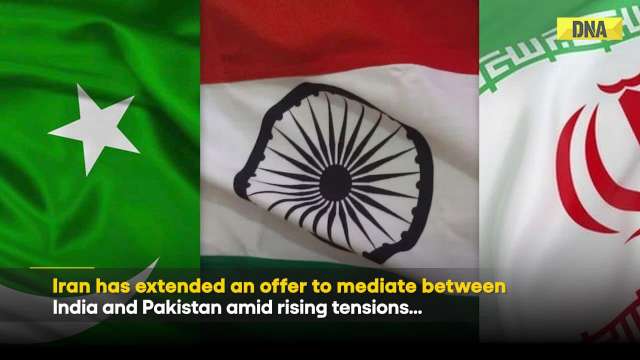 Pahalgam Terror Attack: Iran Offers Diplomatic Intervention As India-Pakistan Tensions Rise
Pahalgam Terror Attack: Iran Offers Diplomatic Intervention As India-Pakistan Tensions Rise Jammu & Kashmir Attack: Indian Nationals Married to Pakistanis Stir Chaos At Indo-Pak Border
Jammu & Kashmir Attack: Indian Nationals Married to Pakistanis Stir Chaos At Indo-Pak Border Pahalgam Attack: Pakistan’s Defence Minister Admits Support For Terror Groups, 'Doing West’s...'
Pahalgam Attack: Pakistan’s Defence Minister Admits Support For Terror Groups, 'Doing West’s...' Pahalgam Terror Attack: US Spy Chief Tulsi Gabbard Condemns Jammu Kahsmir Terror Attack | Trump
Pahalgam Terror Attack: US Spy Chief Tulsi Gabbard Condemns Jammu Kahsmir Terror Attack | Trump Anant Ambani appointed as whole-time director of Mukesh Ambani-led Reliance Industries
Anant Ambani appointed as whole-time director of Mukesh Ambani-led Reliance Industries 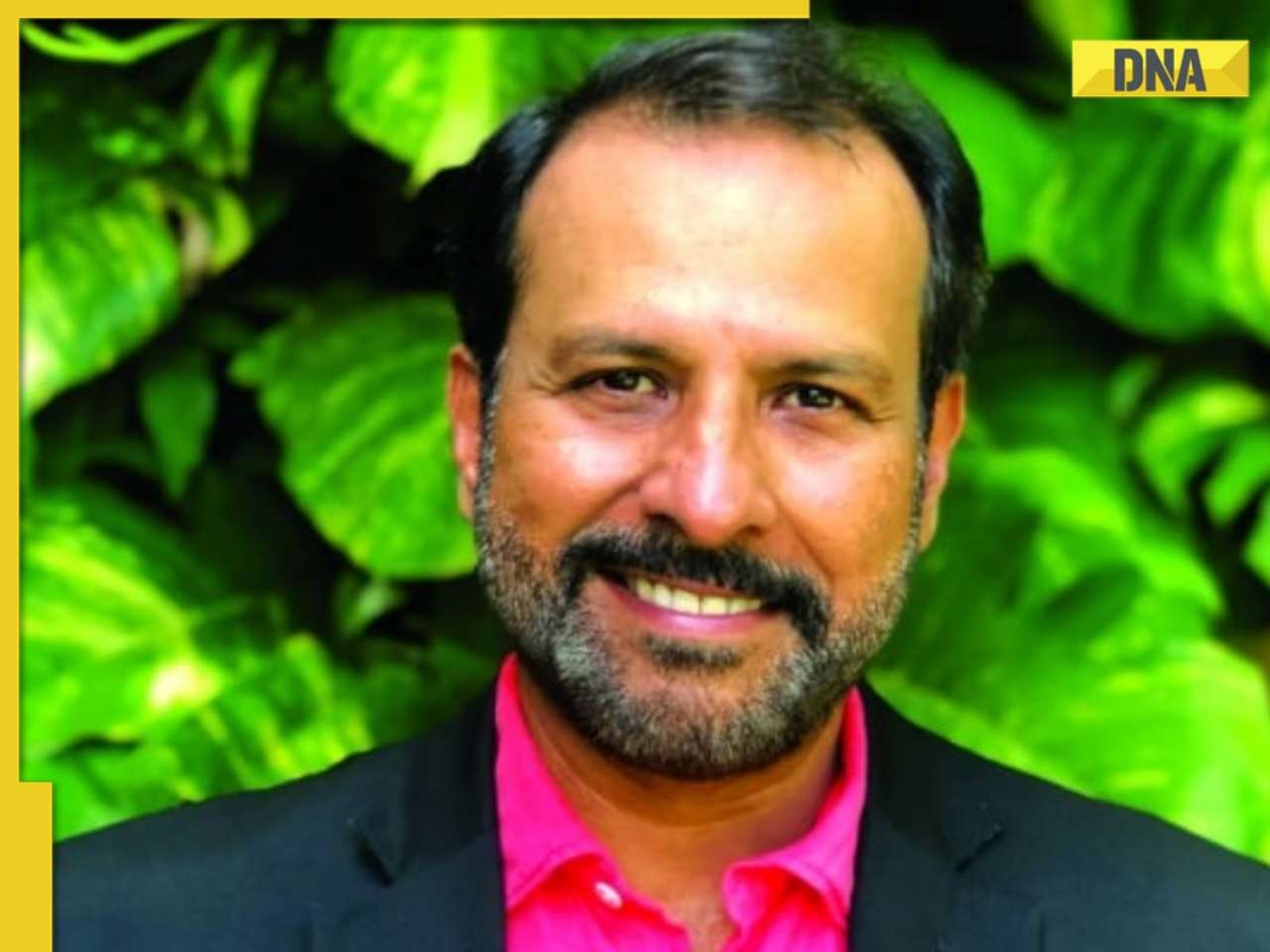 Meet Indian who bought island in Indian Ocean, turned it into luxury resort, price per night is Rs...; no connection with Mukesh Ambani, Adani, Narayana Murthy
Meet Indian who bought island in Indian Ocean, turned it into luxury resort, price per night is Rs...; no connection with Mukesh Ambani, Adani, Narayana Murthy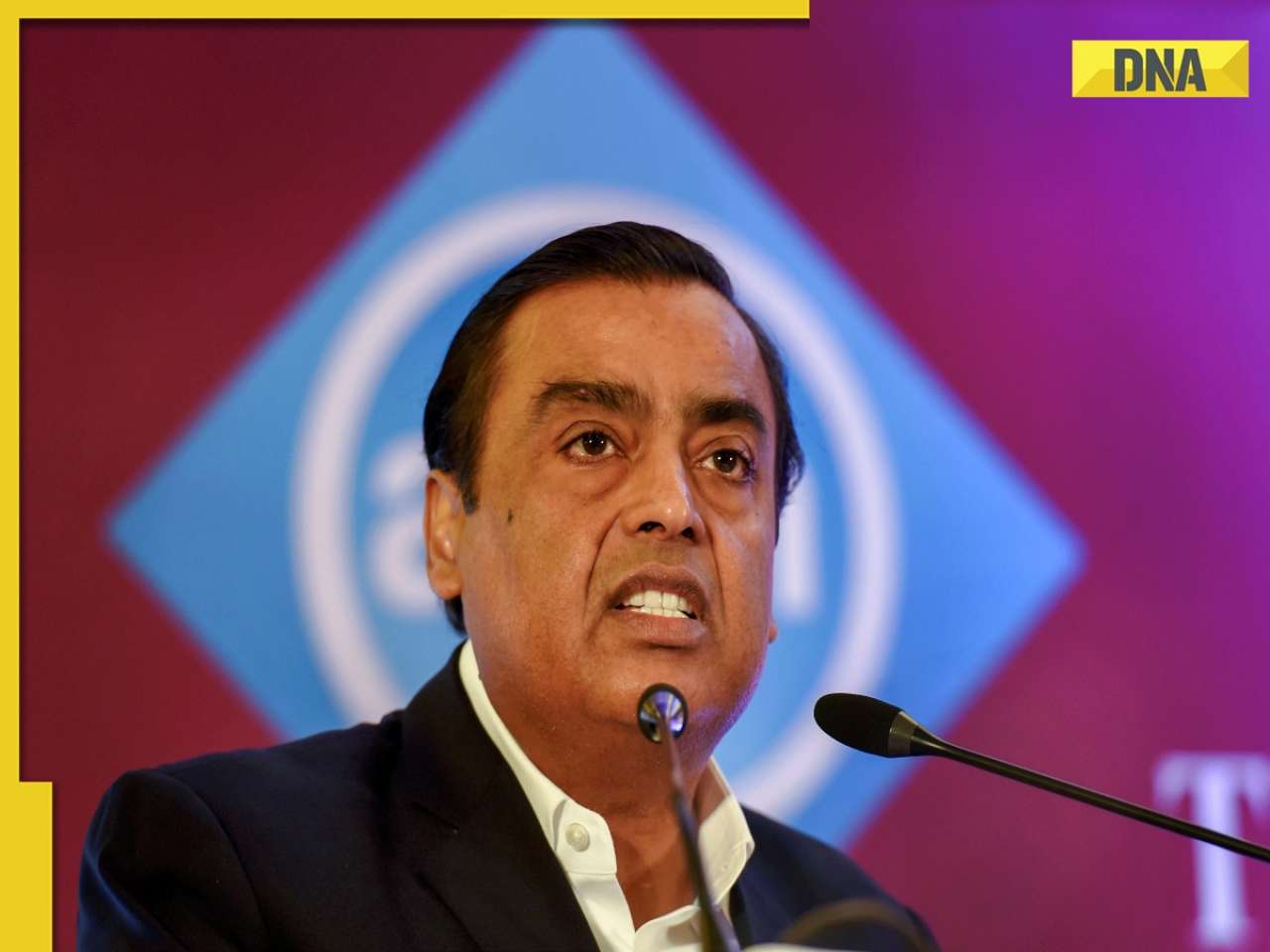 Mukesh Ambani's Reliance Industries beats net profit expectations at Rs 19407 crore, announces dividend of Rs...
Mukesh Ambani's Reliance Industries beats net profit expectations at Rs 19407 crore, announces dividend of Rs... You can now share your UPI ID with family, friends: Know what is UPI circle, check step-by-step guide to enable it on...
You can now share your UPI ID with family, friends: Know what is UPI circle, check step-by-step guide to enable it on...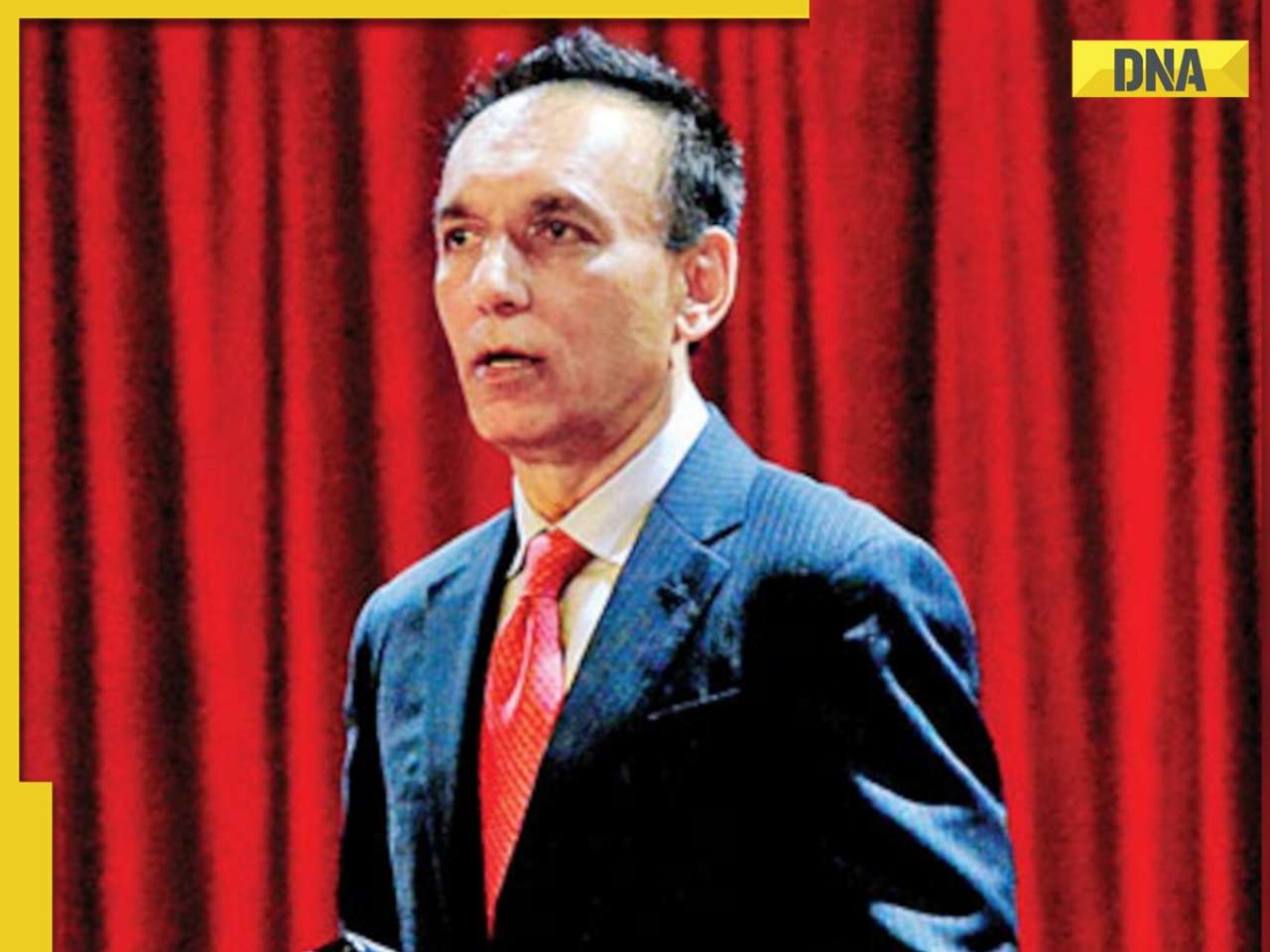 Meet man, IIT graduate, who once worked at Ratan Tata's TCS, built Rs 28996 crore firm, now a billionaire with net worth of Rs...
Meet man, IIT graduate, who once worked at Ratan Tata's TCS, built Rs 28996 crore firm, now a billionaire with net worth of Rs... From Mughal-E-Azam, Pakeezah to Ponniyin Selvan: 6 iconic Indian movies that took years to complete
From Mughal-E-Azam, Pakeezah to Ponniyin Selvan: 6 iconic Indian movies that took years to complete Mukesh Ambani, Nita Ambani to Radhika Merchant: A look at academic achievements of Ambani family
Mukesh Ambani, Nita Ambani to Radhika Merchant: A look at academic achievements of Ambani family Amitabh Bachchan, Aishwarya Rai Bachchan to Abhishek Bachchan: Uncover educational credentials of Bachchan family
Amitabh Bachchan, Aishwarya Rai Bachchan to Abhishek Bachchan: Uncover educational credentials of Bachchan family India's 5 most spine-chilling crime docu-series: Sector 36 to House of Secrets:
India's 5 most spine-chilling crime docu-series: Sector 36 to House of Secrets: Pratik Gandhi and Patralekha's Phule: Who are real-life revolutionaries Jyotirao and Savitribai Phule?
Pratik Gandhi and Patralekha's Phule: Who are real-life revolutionaries Jyotirao and Savitribai Phule? 'Modi bunkers' back in use amid fear of escalation along LoC after Pahalgam massacre
'Modi bunkers' back in use amid fear of escalation along LoC after Pahalgam massacre  'First they denied, then they..': Omar Abdullah slams Pakistan’s ‘neutral’ probe offer into Pahalgam attack
'First they denied, then they..': Omar Abdullah slams Pakistan’s ‘neutral’ probe offer into Pahalgam attack Government's advisory to media channels to refrain from live coverage of security operations: 'During Kargil war, Mumbai attacks...'
Government's advisory to media channels to refrain from live coverage of security operations: 'During Kargil war, Mumbai attacks...' Attempt to grope breasts is 'aggravated sex assault' but 'not rape,' says Calcutta High Court
Attempt to grope breasts is 'aggravated sex assault' but 'not rape,' says Calcutta High Court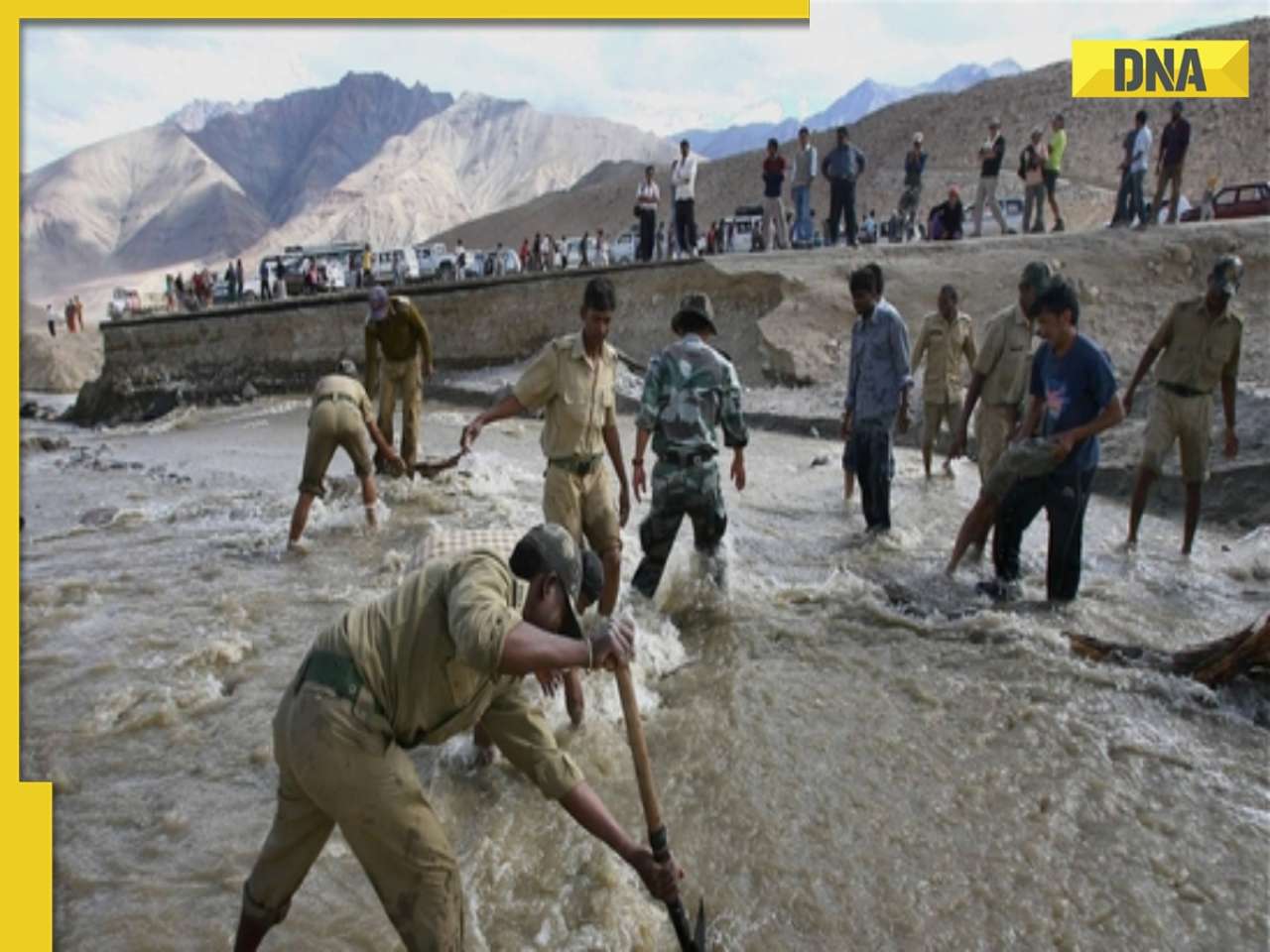 How much time will it take for India to stop water flow to Pakistan after suspension of Indus water treaty?
How much time will it take for India to stop water flow to Pakistan after suspension of Indus water treaty? 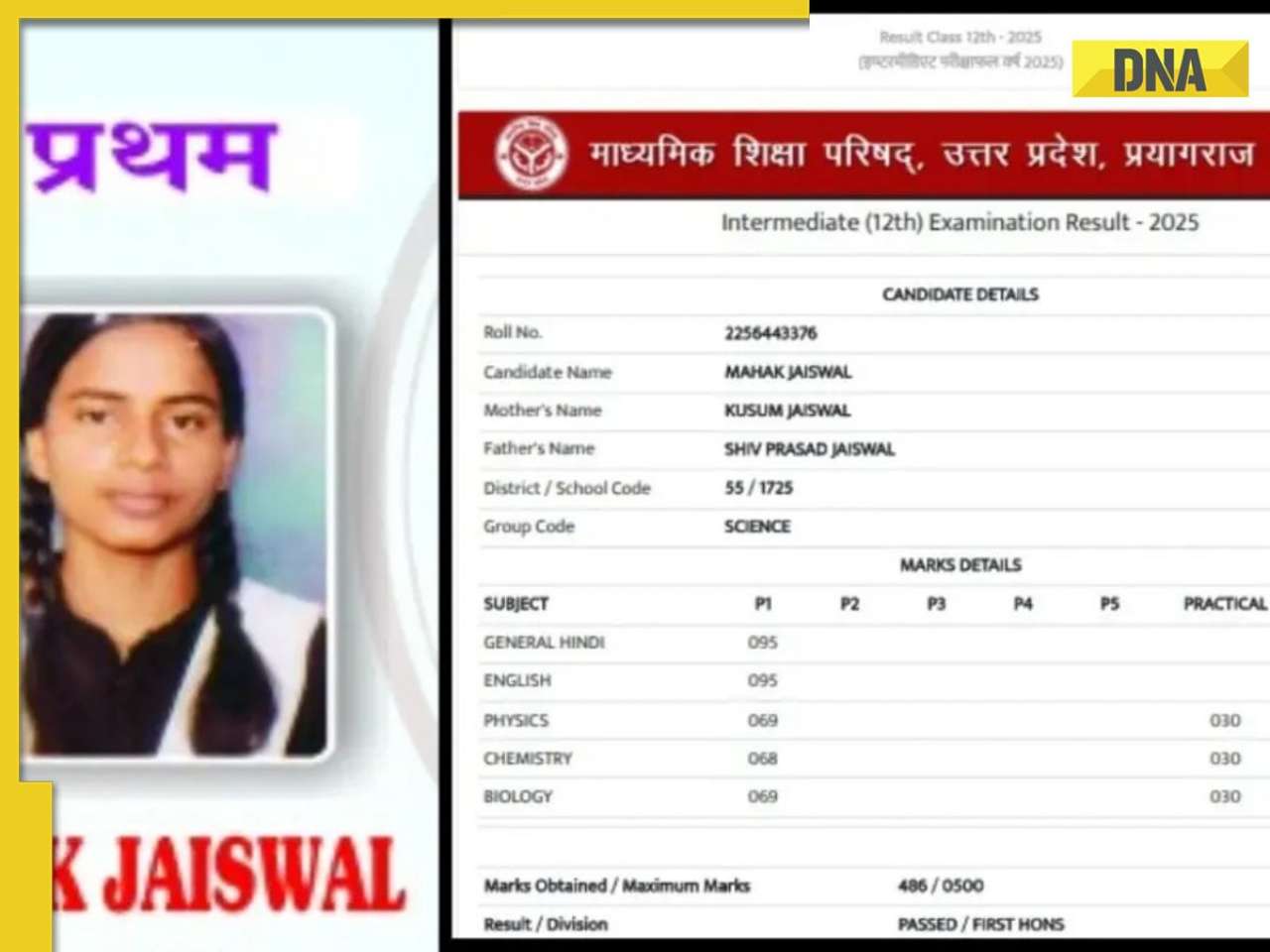 Shocking UP Board 12th Result: Topper Mehak Jaiswal’s extraordinary score will leave you speechless, check here
Shocking UP Board 12th Result: Topper Mehak Jaiswal’s extraordinary score will leave you speechless, check here Meet woman who worked as doctor, treated patients during day, prepared for UPSC exam at night, cracked in first attempt to become IPS with AIR...
Meet woman who worked as doctor, treated patients during day, prepared for UPSC exam at night, cracked in first attempt to become IPS with AIR... Meet Anju Bhatt, daughter of Army officer, scored 312th rank in UPSC CSE 2024 without coaching; Know her success secret
Meet Anju Bhatt, daughter of Army officer, scored 312th rank in UPSC CSE 2024 without coaching; Know her success secret Meet woman who brought tears of joy to parents by cracking UPSC exam without any coaching classes, studying for 12 to 14 hours a day, with AIR...
Meet woman who brought tears of joy to parents by cracking UPSC exam without any coaching classes, studying for 12 to 14 hours a day, with AIR... Meet man, grandson of an infamous dacoit who secured job at Phillips with annual package of Rs 88 lakh, later cracked UPSC with AIR...
Meet man, grandson of an infamous dacoit who secured job at Phillips with annual package of Rs 88 lakh, later cracked UPSC with AIR... Tesla CEO Elon Musk launches most affordable Cybertruck, but it costs Rs 830000 more than older version, it is worth Rs...
Tesla CEO Elon Musk launches most affordable Cybertruck, but it costs Rs 830000 more than older version, it is worth Rs... Planning to buy a Maruti Suzuki car? Prices set to rise by 4% from...
Planning to buy a Maruti Suzuki car? Prices set to rise by 4% from... Audi launches Audi RS Q8 2025 in India: Know price, specifications and unique features
Audi launches Audi RS Q8 2025 in India: Know price, specifications and unique features  Honda Elevate Black Edition launched in India at Rs 15.51 Lakh: Key things to know
Honda Elevate Black Edition launched in India at Rs 15.51 Lakh: Key things to know This car wins 'Indian Car of the Year 2025' award, beats Maruti Suzuki Dzire, Swift, it is...
This car wins 'Indian Car of the Year 2025' award, beats Maruti Suzuki Dzire, Swift, it is...










)
)
)
)
)
)
)
)
)
)
)
)
)
)
)
)











